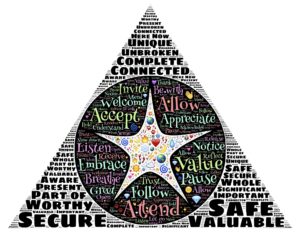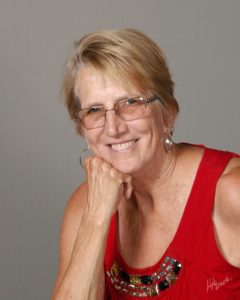God’s Plan for Us
By Carol McClain
 “‘For I know the plans I have for you,’ declares the Lord, ‘plans to prosper you and not to harm you, plans to give you hope and a future.'” (Jeremiah 29:11, NIV)
“‘For I know the plans I have for you,’ declares the Lord, ‘plans to prosper you and not to harm you, plans to give you hope and a future.'” (Jeremiah 29:11, NIV)
What a beautiful promise God gave us.
God has no intention of harming us.
- He wants to give us hope.
- He wants to prosper us–not in the get rich quick scheme many popular evangelists claim. He wants us to have success wherever we are in life. A contentment.
- He wants to give us a future.
As we live though, we have to have met some basic needs. Psychologist Abraham Maslow proposed a hierarchy of needs. If the basic human needs aren’t met, we won’t get to the growth needs.
In a nutshell, Maslow breaks down our hierarchy in this way:
- Deficiency Needs
- We have physiological needs: food, clothing, shelter. If we’re starving, we’re not going to create great art.
- We have safety needs: we have to be away from a drug environment, away from crime, away from wildfires and tornadoes. We’ve heard about the success in zip codes. Essentially, the better area you live in, the less you have to worry about food or safety.
- We need to belong and be loved. (this has nothing to do with zip codes)
- We need self-esteem.
- Growth Needs
- We need cognitive fulfillment. Learning new things enhances our life. It doesn’t have to be calculus or anatomy, but learning a new craft, recipe, exercise–wherever our interests take us. Obviously, if we’re lacking self-esteem, we’re less likely to try new things. If we’re working on being loved, we may try to learn to please others rather than ourselves.
- We have aesthetic needs. Schools do a disservice by eliminating art and music and shop and home ec. Humans have always searched for the aesthetic. Who makes it as a Hollywood actor? What have we dug up from Greek civilization? Why do people love vistas of mountain valley? It’s been proven good looking children do better in school. Is it this innate need?
- We must find self-actualization. This is to become the best version of yourself. And, to me, this is where God’s promise shines. I do not have to be the new Dr. Martin Luther King, Jr. or Mother Teresa. I just have to be better today than I was at this time last year. It’s not static. Whether you’re 90 or 9, you can become a better version of yourself.
- Finally, the top of Maslow’s pyramid is transcendence. Here, we live beyond ourselves. We live for others, for the betterment of society. Never can we get here without God.
The following quote is fabulous:
It is quite true that [we live] by bread alone—when there is no bread. But what happens to [our] desires when there is plenty of bread and when [our bellies are] chronically filled?
~ Abraham Maslow
Once our basic needs are met, we can move upward and see Jeremiah 29:11 fulfilled.
In my latest novel, A New York Yankee on Stinking Creek, you can see Maslow’s pyramid in action. Artist Kiara has nothing. Delia Mae is working on her esteem. The two of them supply each other’s needs and thus fulfill Jeremiah 29:11. Check it out.
Where are you on the pyramid?

you are do right – God leads us – but we have to follow his path for us, not our own made path.